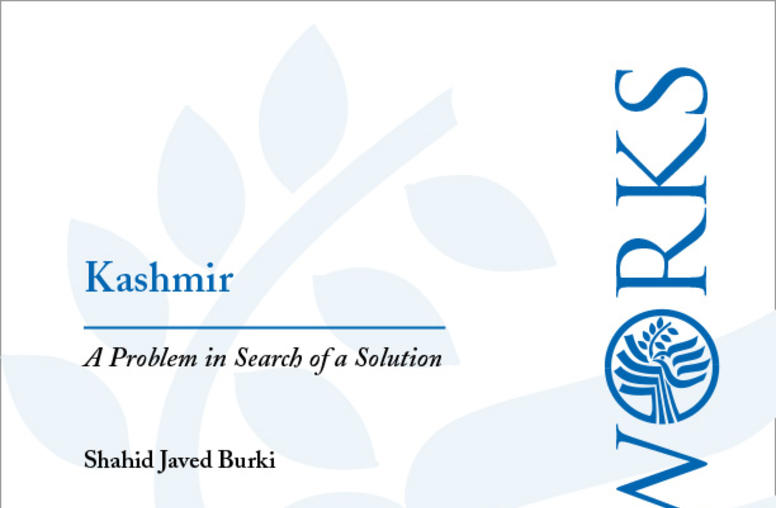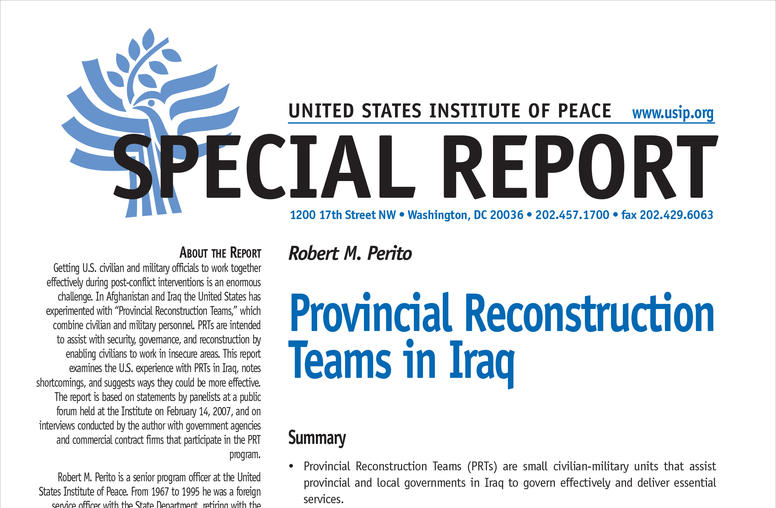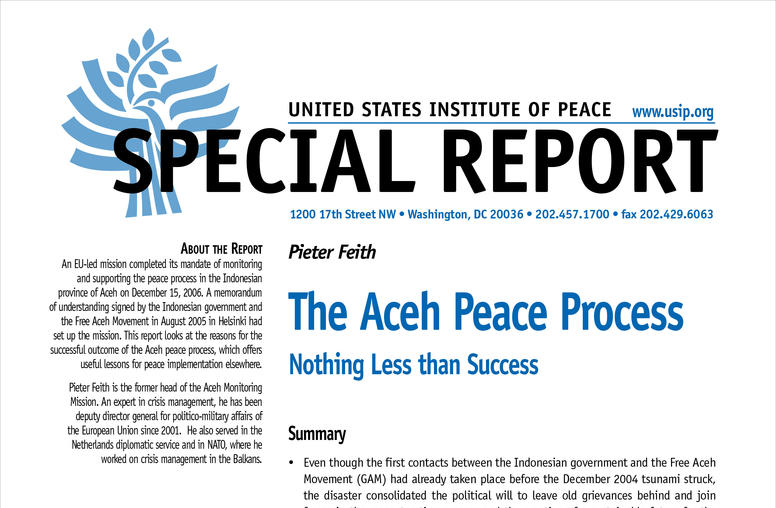Publications
Articles, publications, books, tools and multimedia features from the U.S. Institute of Peace provide the latest news, analysis, research findings, practitioner guides and reports, all related to the conflict zones and issues that are at the center of the Institute’s work to prevent and reduce violent conflict.
Nation Building: We CAN Do Better
How can the international community increase the likelihood of success in societies emerging from conflict? According to panelists at a recent USIP event, the success of nation building missions depends on acquiring support from policymakers in Congress and the Administration, applying lessons learned in the past, using common frameworks and doctrine for the future, and increasing civilian capacity.
State-Owned Enterprises Post-Conflict Political Economy Considerations
Deputy Undersecretary of Defense for Business Transformation Paul Brinkley recently initiated a project to revitalize State-Owned Enterprises (SOEs) in Iraq. How will SOE revitalization affect the economic, social, and political situation in that country?
Kosovo: What Can Go Wrong?
The UN's Special Envoy Martti Ahtisaari was tasked last summer with resolving the question of Kosovo's future status with support from the U.S. and the EU. His effort is now drawing to a close— and it is anticipated that he will take his plan that opens prospective sovereignty for Kosovo to the UN Security Council this month. What are the potential drivers of conflict in Kosovo during the period of status decision and thereafter?
The Crisis in Interfaith Relations in the Middle East
The interfaith peace movement in the Middle East has foundered recently, a casualty of major geo-political events, among them the war in Iraq, the increase in hostility between Iran and the West, the Israel-Hezbollah war, and the failure of efforts to resolve the Israeli-Palestinian conflict. These and related factors have contributed to undermine interfaith efforts and limit opportunities for meaningful dialogue and common action.
Public Health and Conflict in North Korea
During the mid-1990s, North Korea experienced a famine that killed millions of people, mostly in rural areas. Despite the severity of that famine and the ensuing deterioration of public health, the political leadership in North Korea has obstinately blocked the effective delivery of humanitarian aid to its citizens. The USIP/Johns Hopkins School of Public Health Task Force on Public Health and Conflict selected North Korea as a case study for its first symposium.
Nigeria 2007: Building Blocks for a Peaceful Transition Workshop Report
Nigeria has had a grim history of electoral violence since its return to democratic rule in 1999, and with its next elections eight weeks away, USIP, in partnership with the West Africa Network for Peacebuilding - Nigeria, held a workshop on the prevention of electoral violence. This report describes the structure of the workshop, highlights concerns about the upcoming elections cited by the participants, and outlines participants' recommendations to civil society for the way forward.
The Future of Democracy in Bangladesh
A surprising turn of events in Bangladesh in early January that could crush Bangladesh's fragile democracy has received little international attention. USIP recently convened a panel of experts to discuss the future of democracy in Bangladesh.

Kashmir: A Problem in Search of a Solution
The ongoing territorial dispute between India and Pakistan over the status of the contested areas of Jammu and Kashmir (henceforth Kashmir) is well known and well documented. This study acknowledges that any resolution of this dispute may be many years in the making.

Provincial Reconstruction Teams in Iraq
In January 2007, President Bush announced that the United States would double the number of Provincial Reconstruction Teams (PRTs), small civilian-military units that assist provincial and local governments to govern effectively and deliver essential services, as part of his plan for a "New Way Forward" in Iraq. This report examines the U.S. experience with PRTs in Iraq, notes shortcomings, and suggests ways they could be more effective.

The Aceh Peace Process: Nothing Less than Success
An EU-led mission completed its mandate of monitoring and supporting the peace process in the Indonesian province of Aceh on December 15, 2006. This report looks at the reasons for the successful outcome of the Aceh peace process, which offers useful lessons for peace implementation elsewhere.